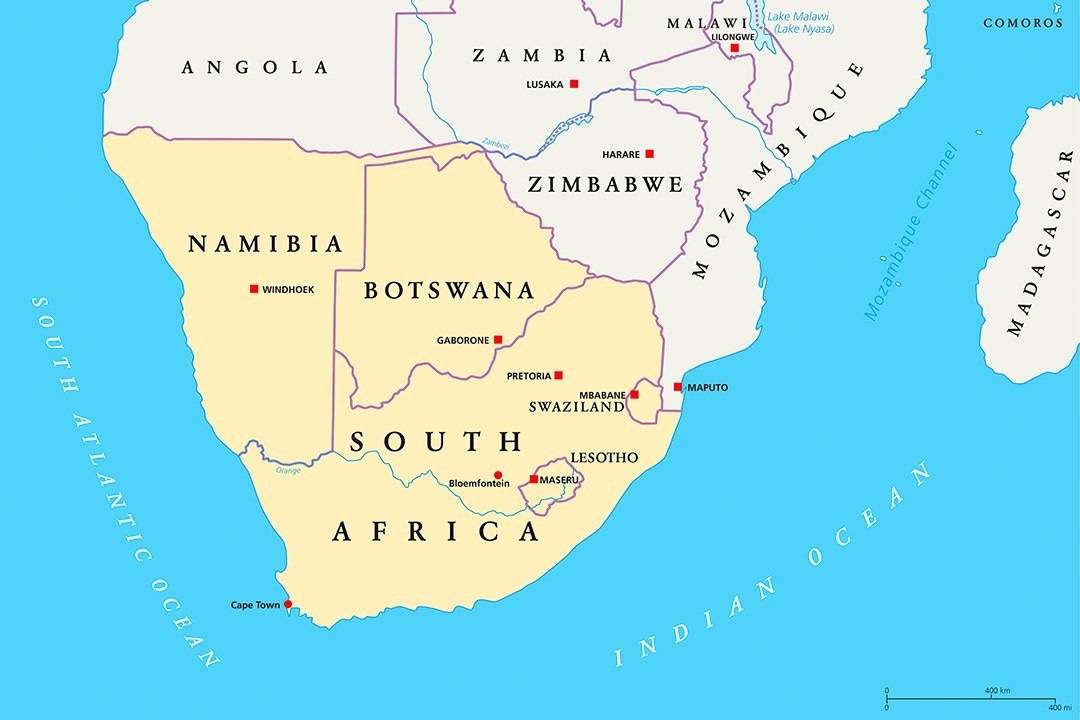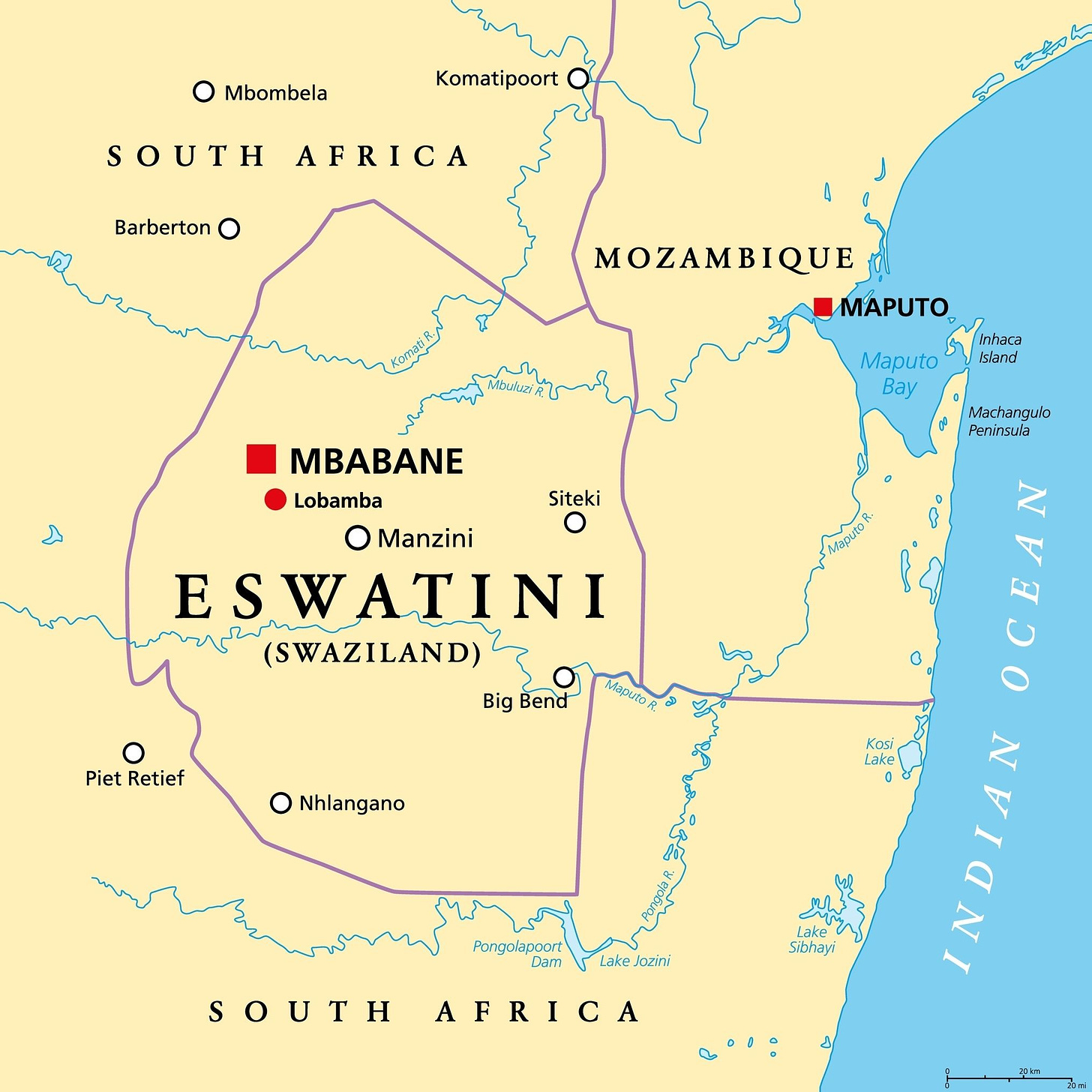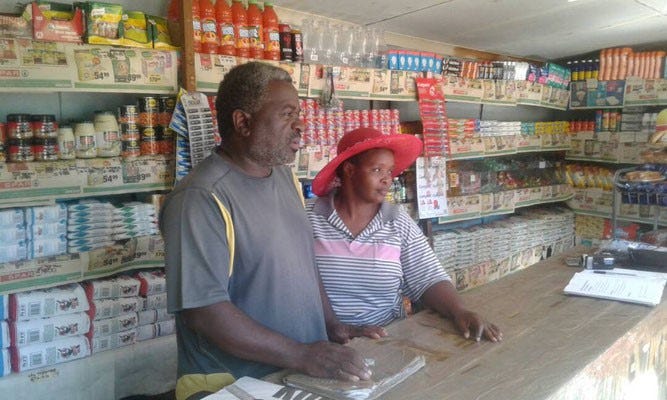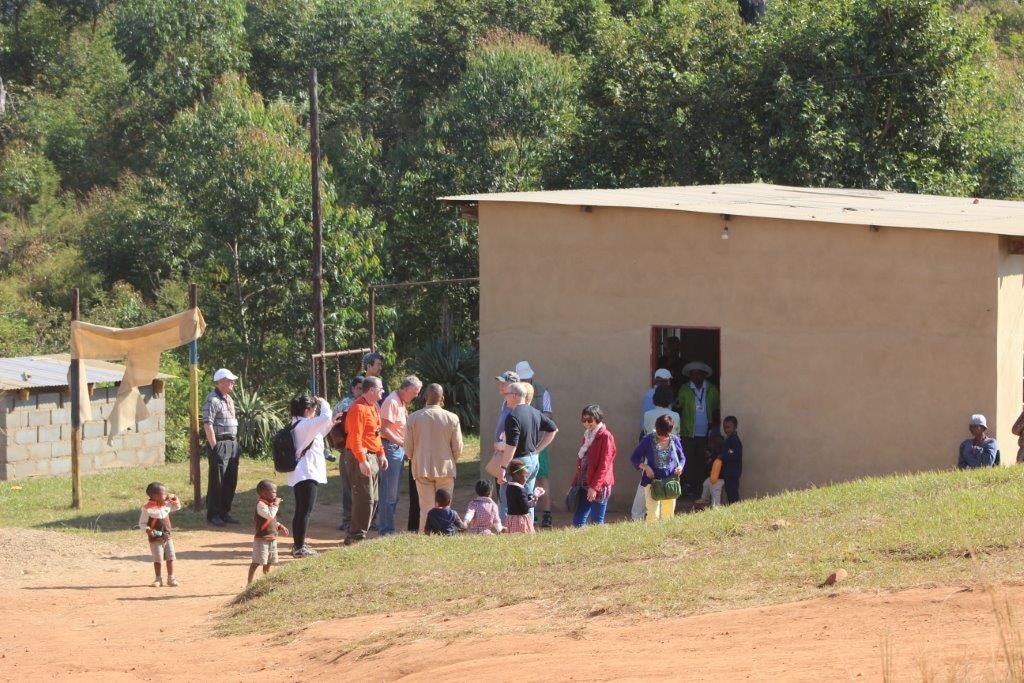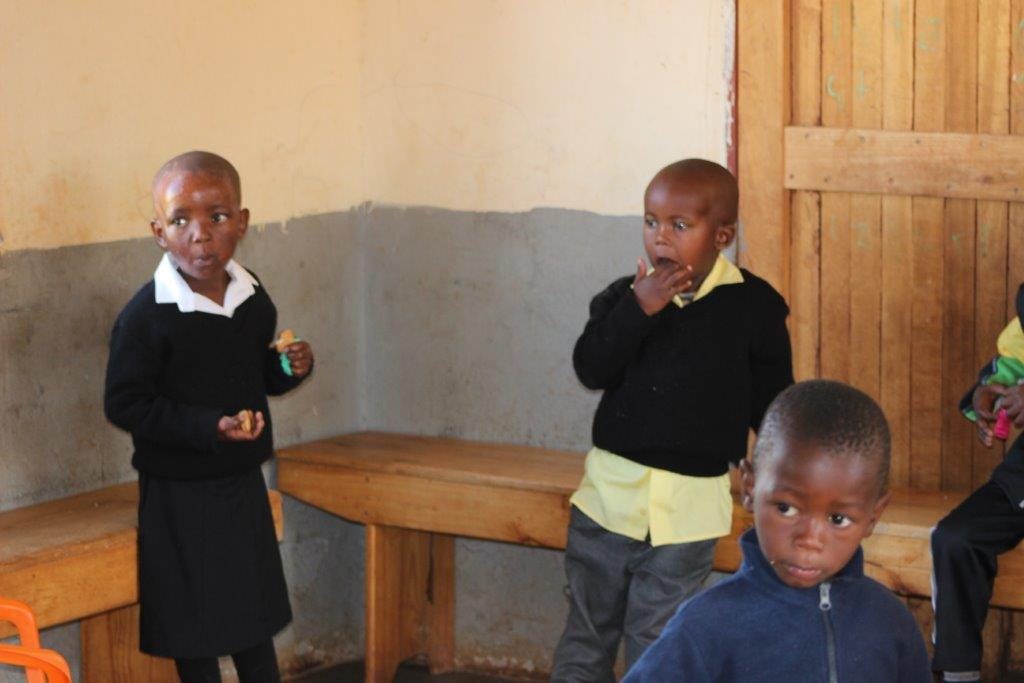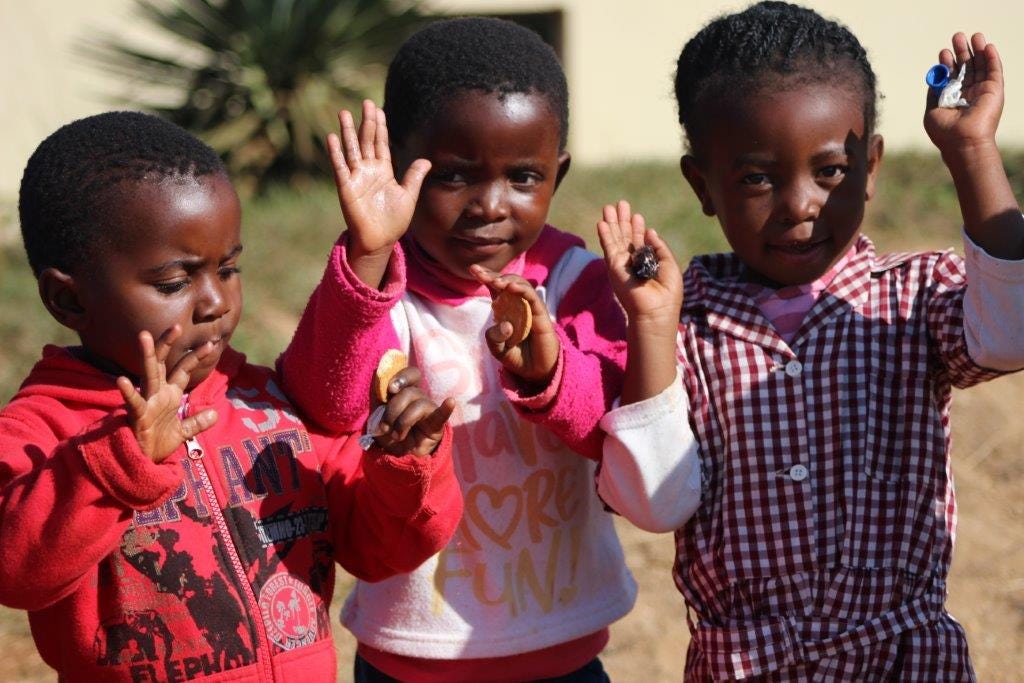Eswatini is the smallest country in Southern Hemisphere and the last remaining absolute kingdom in Africa. Smaller than the state of New Jersey, this landlocked country is sandwiched between South Africa and Mozambique. Perhaps you will recognize it by its former name – Swaziland.
Eswatini offers a haven of spectacular safari experiences. Despite its small stature, it is home to some of Africa’s top game reserves where the Big Five of safari royalty can be seen: the lion, the leopard, the elephant, the Cape buffalo, and the rhinoceros. But that’s not all. Teeming with wildlife, Eswatini has 107 species of mammals, 507 species of birds, and 153 species of reptiles and amphibians. That is one very impressive assortment of critters.
Before you decide to go traipsing around the semi-tropical hillsides of this Sub-Saharan African jewel, you might want to take a closer look at real-world Swazi life.
Recall that Eswatini is an “absolute monarchy.” King Mswati III ascended to the throne in 1986. This guy rules. Period. He has supreme authority and he does not give a rip-snort about political policies, legislative decisions, or cultural changes. He is the Big Cheese. Bottom line – Eswatini is NOT a free country. Mswati is the absolute Grand Poobah and the 1.2 million Swazis are his subjects.
All is not rainbows, petunias, and bunny-rabbit whiskers for everyone in Mswati’s Kingdom. Check out this info:
At the last count, King Mswati had 15 wives and 45 children. By tradition, the King of Eswatini is expected to marry a woman from every clan in his kingdom in order to promote cohesiveness. He is one very busy boy.
King Mswati changed the name from Swaziland to Eswatini in April 2018 in recognition of his 50th birthday. He claimed people were confusing Swaziland with Switzerland. I wonder if the Big Kahuna considered those same people would just as likely confuse Eswatini with Estonia.
27.2% of Swazis in the 15 – 49-year-old age group are HIV positive. 15,000 children under the age of 14 have HIV. Whoa! Back up. Let those numbers sink in. This is one incomprehensibly unhealthy kingdom. In fact, Eswatini has the highest prevalence of HIV in the entire world.
The average Swazi is 21.5 years old and is expected to live to the ripe old age of 31 years, 11 months, 24 days, and 12 hours. Given the abysmal health crisis, it is easy to understand why 36.6% of the population is under the age of 15. 25% of the children have lost one or both parents to HIV/AIDS.
The average monthly income in Eswatini is $ 304. USD. Almost two-thirds of the population, 732,000 Swazis, survive on less than $1 USD per day.
On a bright note, primary school education is free up to the completion of fourth grade. Parents pay for any schooling after that. Parents? Oh, you mean that small percentage of padres who manage to dodge the Grim Reaper beyond 31 years, 11 months, 24 days, and 12 hours? Yup, all those healthy eager beaver parents, making less than $ 1 a day, can hardly wait to fork over their hard-earned grocery money to pay for education. Not to worry, food and eating can be overrated. Reality check – education is not a priority.
Why would anyone choose to go to Eswatini? Personally, I can think of only one good reason – for humanitarian purposes. I can only pass on to you what I was told while I was there.
People in the West give generously to help the poor, the underprivileged, the sick, and especially the orphans of Eswatini; but, the only way to guarantee assistance reaches its intended destination is to deliver it personally. By the time the masters of greed and corruption finish clawing through the donations and contributions, often nothing remains.
Before you part with your valuable resources make sure you really know where they are going. All too often you aren’t doing diddly squat to help those in need, despite what you are told.
My husband and I went to Eswatini by happenstance. It was added as a quick side trip while we were on a tour of South Africa. The entire purpose of going into the kingdom was to deliver food to a school for orphans. First stop: the border between South Africa and Eswatini. Apparently, the King is quite a territorial guy. We walked across the border while the royal head honcho’s border thugs searched our bus transportation for contraband. Everything and everyone was whiffed and sniffed before we received the thumbs-up to enter the country. Back on board the bus, we beelined to the nearest town to go grocery shopping.
En route to the store, we were briefed on what food items the orphanage needed the most. These included staples like flour, beans, rice, and cans of fish broth. Fish broth? Ugh! Maybe your palate has a hankering for fish broth but I have a strong aversion to anything remotely tasting like fish. Blah! We were assured the children at the school would gobble up the fish broth.
The store proprietor probably thought the floodgates of heaven broke open when 22 adults from the U.S., Canada, and Australia stampeded through the door ready to go grocery shopping.
We grabbed a cart and went to work filling it with items on the list. My husband is a very generous guy. I tossed a bag of rice and a bag of flour in the cart. He added another two of each. I plunked four cans of beans in, he tossed in an extra half dozen. And so the shopping spree continued.
The real show-stopper, however, was when the guy dropped a whole load of f-bombs on the canned food aisle.
That would be cans of fish broth, of course. With one fell swoop my husband stripped the entire shelf clean and sent every can of fish broth clambering into our cart. No child would go to bed hungry on his watch. No sir!
We wheeled the cart over to the line-up in front of the cashier, pleased as a couple of stuffed warthogs with our contribution to the orphan school food bank.
Well flipping rhino tails! Did we get the wrong memo?
Most of our fellow Good Samaritans stood in line holding bags of candy. Some had retrieved coloring books, crayons, small toys, and balloons. Others sported bags of cookies and chocolate.
Only one other couple had a cart that resembled ours. Well, sort of. It didn’t have any fish broth in it. Mr. Twincart, cut from the same cloth as my husband, solved that problem expeditiously. He cased the joint, found the stock room, and returned carrying a full case of fish broth. No child would go to bed hungry on his watch either!
I was perplexed by the items my fellow travelers bought for the kids. Our agenda had been spelled out clearly and explicitly – the kids needed wholesome, nutritious food. Not only did they not have enough healthy food, they often did not know where their next meal would come from. These children weren’t playing around, they were in the real-life game of survival.
Somehow, aside from us and the Twincarts, our fellow Good Samaritans had morphed into Santa’s Elves and the Easter Bunnies.
The Orphan School
Around forty students between the ages of three and twelve attended the orphan school. All the children came from child-headed households. The average age of the child in charge of the various households was eight years old. Yes, you are reading that correctly. Eight-year-olds were running the show, parenting the younger children. Most of their parents had died from AIDS.
We went inside the school, along with the other Samaritans, Elves, and Bunnies. The school was comprised of one large room with a partitioned kitchen area. The staff alternated working in both areas, education and meal preparation. The excited children gathered at the front of the room to present a program they put together to honor this special occasion.
They sang “He’s Got the Whole World” both in English and their native language. This was followed by more songs and entertainment. They received a standing ovation for their delightful performance.
They were as cute as a bug’s left ear!
The time had come for the obligatory speeches. In particular, the director of our program reiterated the spiel on the school’s goal to raise funds to purchase small farm animals so they could become self-sustaining. They had the following options:
Chickens - $ 25 for 4 - These would provide a daily supply of eggs.
Goats - $ 100 each These could provide a daily supply of milk and cheese.
Our director had forewarned us, the Chicken Deal was a bad investment. Time and time and time again the Chicken Deal failed because four chickens were bought and four chickens were cooked. Nary an egg was ever laid.
All eyes had turned to the Goat Deal. A specific goal had been established to raise funds to buy a herd of ten goats. A parallel goal was also set to educate the staff on how to use the goat herd so the school could be self-sustaining. Note to staff - do not cook the herd.
The benefits of a goat herd were impressive:
Goats would provide a supply of fresh healthy milk, milk products, and meat for the school.
Goats would provide a source of income to the school through the sale of milk products, meat, fibers, hides, and baby goats.
Goats are grass and weed eaters. There was no shortage of food for them around the school.
Goats are hardy, resilient, low-maintenance herd animals.
Goats are friendly animals and get along well with children.
Goats are adorable lawnmowers.
My husband and I were sold. We coughed up a hundred big one$ for a goat. The Twincarts were sold. They coughed up a hundred big one$ for a twin goat.
Now, all we needed was Santa’s Elves and the Easter Bunnies to follow suit. The basket was passed and they coughed up big one$ too!
Way to go Team! Yea Elves! Come on Bunnies! All right!! Look at you!! Yea!!
Yup, they put in the one$ for sure.
There must have been a paltry total of twenty bucks in the basket. It was almost enough to buy one goat’s tail.
Surveying the pittance collected from the Elves and Bunnies, I immediately empathized with them, recognizing the severe economic hardships and sacrifices they each had endured just to participate in this jaunt through the southern part of Africa.
Wrong!! Oh, Cape Buffalo bull tweet! From what I had seen, most of them had wheelbarrows of greenbacks to spend on a wide and varied range of self-indulgent extravagances. There wasn’t a single one of them who would skip a beat if they plunked down a hundred smackers.
Perhaps you recall the Gaelic meaning of my name is “Warrior Maiden.” Occasionally the Maiden raises her hackles and takes over my thinking – this was one of those times.
The first item on my battle plan was to assign new names to Santa’s Elves and the Easter Bunnies. Cheapskates and Tightwads.
The second item on my battle plan was to go into fund-raising mode.
The moment I decided I could convince the Cheapskates and Tightwads to fork over enough moolah to buy eight more goats, I felt a power come upon me. Call it divine intervention or whatever you want. I had not a single shred of doubt that I could convince these misers to part with their bucks. Don’t ask me what I said or did, because I don’t quite recall… I just went around the room and started snapping the funds up.
In the meanwhile, the two carts of food supplies were unloaded and brought into the kitchen. Mr. Twincart made a triumphal entry, displaying his powerlifting skills with his case of fish broth held high above his head. The staff was overjoyed. Three cheers for Twincart! Thank goodness someone read the memo before we arrived!
I continued to hobnob around the room, extracting big one$ from Cheapskates and Tightwads. After I made one round, I circled back for another round. Gotta strike while the iron’s hot!
The kids weren’t gobbling up fish broth, but they were devouring lots of candy.
When my fundraising effort was tallied, there was enough money to get fourteen goats. The staff and director of our group started crying with joy. They determined they would name one goat “Lois.”
About fifteen months later my husband and I met a couple in our travels who had just been to Eswatini where they visited a school for orphans. They shared an incredible story. Apparently, about a year before their visit, one group of people made the biggest contribution the school had ever received. The famed group raised enough funds to buy a herd of fourteen goats! The staff was taught how to care for the goats so the school could be self-sustaining. Everything went exactly as planned except…
One by one they ate the goats until the herd was gone.
I liked the story better when it had a fairy-tale ending – leaving it with my namesake goat and her pals chomping on the grass on a hillside in Eswatini, helping the orphans make it through another day.
Real life is not a fairy tale.




